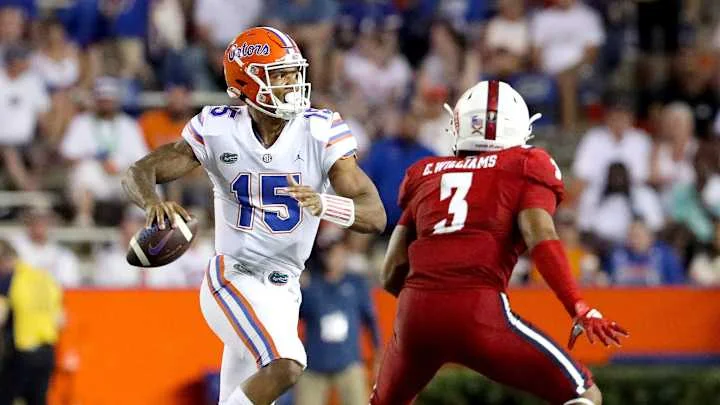
What’s Shaping the Gators’ Next Big Showdowns on the Field?
The world of college football is buzzing with anticipation as the Florida Gators make strategic additions to their future schedules, promising fans a mix of fierce rivalries and fresh challenges. These updates not only highlight the evolving landscape of the Southeastern Conference (SEC) but also underscore the importance of non-conference games in building team momentum and revenue for athletic programs.
At the heart of the news, Florida has locked in key opponents for the 2026 and 2027 seasons, as reported by FBSchedules.com. For 2026, the Gators will kick off their season at home against Florida Atlantic on September 5 at Ben Hill Griffin Stadium in Gainesville. This matchup carries a $1.2 million guarantee for the Owls and includes a clause to renegotiate if the SEC expands to a nine-game conference schedule. Following that, Florida will host Campbell on September 12 and travel to face in-state rival Florida State on November 28, rounding out a three-game non-conference slate that balances home advantage with road tests.
Moving to 2027, the Gators are set to host South Alabama on September 4 and Charleston Southern on September 11, both at home. These additions revive a previously scheduled game with South Alabama from 2020, which was canceled due to the COVID-19 pandemic. Florida will pay South Alabama a $1.2 million guarantee, with reduced penalties if SEC changes force cancellations. Meanwhile, Charleston Southern receives a $500,000 payout. The season will wrap up with Florida State visiting Gainesville, maintaining the storied rivalry. Additionally, the annual clash with Georgia extends through 2031, with neutral-site games in Atlanta in 2026 and Tampa in 2027 due to renovations at Jacksonville's EverBank Stadium.
Florida's head coach Billy Napier expressed enthusiasm about these venues, noting, "We're excited about the opportunity to play in both Atlanta and Tampa, both great venues... I think it'll be unique, and certainly we're excited about that opportunity." This reflects a broader strategy to maximize exposure and financial gains while adapting to conference demands. Compared to past schedules, such as the 2025 lineup that includes games against Long Island University and Miami, these additions show Florida's commitment to a mix of in-state foes and emerging competitors, potentially boosting team preparation for SEC powerhouses.
Analysis reveals that these scheduling moves are not just about wins and losses; they're about navigating the uncertainties of college football's future. With the SEC debating a nine-game conference format, Florida's contracts include safeguards to avoid penalties, highlighting the financial intricacies involved. For fans, this means more high-stakes games that could influence recruiting, player development, and even national rankings.
In summary, these schedule enhancements for the Florida Gators signal an thrilling era of competition and adaptation in college football. What do these matchups mean for the team's dynasty aspirations? Share your thoughts in the comments below and let us know which game you're most excited about—could this be the setup for Gators' glory?